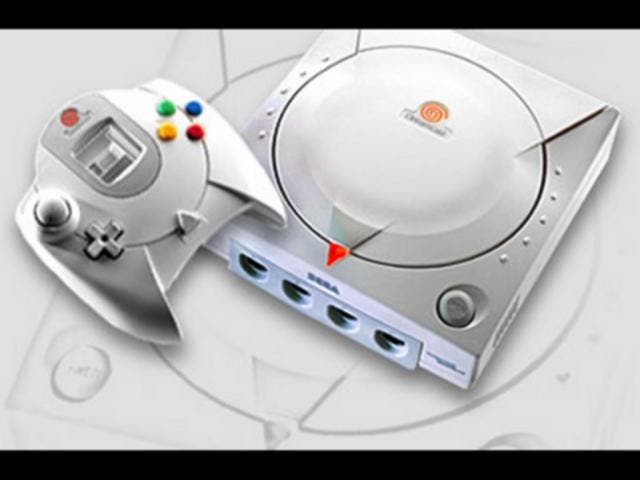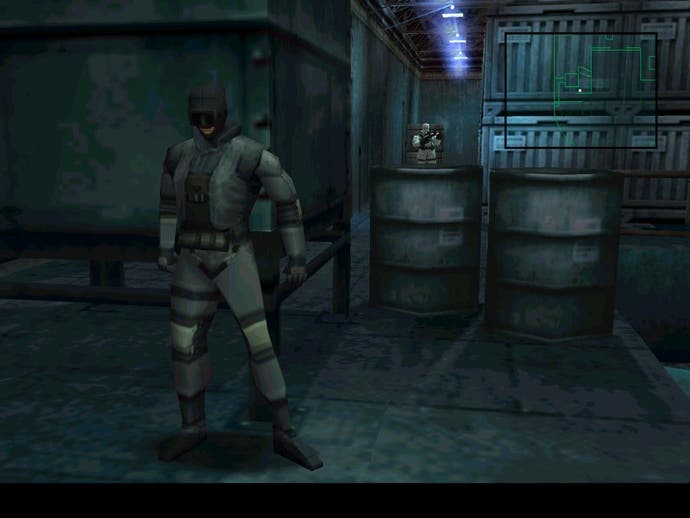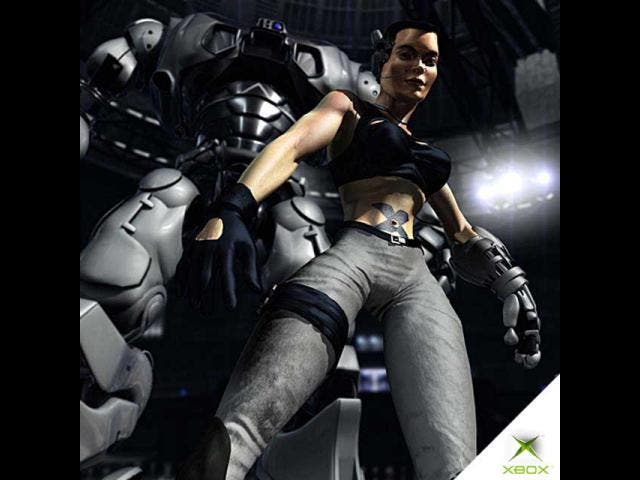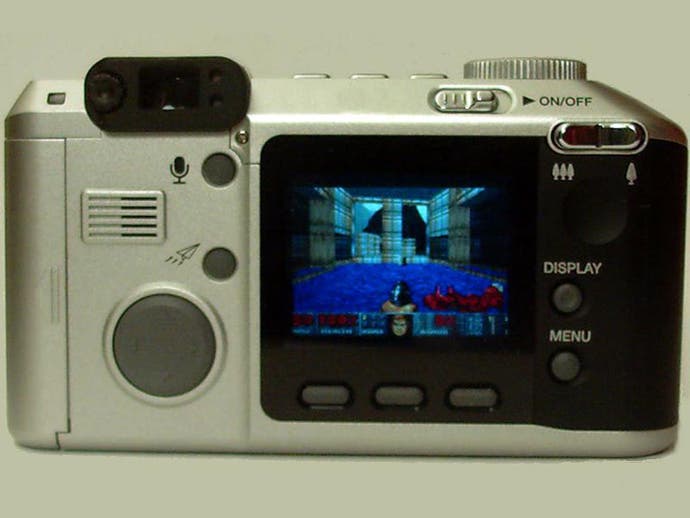Jeux Sans Frontiers
Article - could consoles and PCs be about to merge into one glorious whole?
Over the last couple of decades the divide between PC and console has been clear cut. Consoles are small closed boxes which plug into your television, and are dedicated to playing games on, while the PC is a big ugly beige box which comes in an almost infinite range of upgradable variations, has its own dedicated monitor, and was designed first and foremost to be used for desktop publishing, word processing, accounting and other work-related software.
But now that border between PC and console is becoming blurred, with more and more cross-over between the two. Could we be about to see a merging of PC and console into a single digital entertainment box?

Dreams
Perhaps the first sign was the announcement that Sega's new Dreamcast console would use a modified version of Microsoft's WindowsCE operating system, along with a graphics chip based on the next generation of PowerVR technology. And while Videologic at first concentrated on this lucrative contract to design the Dreamcast's graphics engine, the same basic chip eventually came to the PC in the form of the PowerVR 2.
That wasn't the end of the Dreamcast's innovations though - it also included a built-in modem which allowed users to access the internet. Console owners could now browse the web, send and receive e-mail, and (eventually) play against other Dreamcast owners around the world. All of these things had previously been restricted to computers such as the PC, Mac and Amiga, but now consoles were entering the brave new world of the internet age as well.
Despite this the Dreamcast performed rather disappointingly at retail, and as they slipped deeper and deeper into the red Sega decided to call it quits and abandon the console business, concentrating instead on developing games for a range of platforms. Perhaps most interestingly though, Sega have now revealed that they are developing a PCI add-in card which will allow Dreamcast games to be played on our PCs.

Emulator
Of course, emulators are nothing new, although generally they take the form of software rather than hardware. A quick search of the web will turn up one or more emulators for almost every computer and console system ever released, from the ZX81 and BBC Micro to the N64 and PlayStation.
The other thing about emulators is that in the past console manufacturers have generally tried to stamp them out. Sony, for example, have been engaged in a running courtroom battle with the makers of the "Bleem!" PlayStation emulator for some time now, despite the fact that Bleem! users still need to own the original PlayStation version of a game to play it on their PC, and that Sony makes much of its profits from the royalties gathered from sales of PlayStation games released through other publishers.
By breaking ranks, Sega will be bringing a professional quality emulator to the PC which should allow us to play any Dreamcast game on our beloved beige boxes. Effectively the Dreamcast is becoming a PC component, with the console itself merely a stand-alone version designed for people who don't have a PC, or who just want to play games in the lounge using their TV set without any of the hassle of booting up Windows and worrying about driver conflicts and compatibility problems. And in the long run, it's even possible that we will see the Dreamcast being built into digital televisions, DVD players, set top boxes and other electronic appliances.

Cross-Dressing
Even without the use of emulators or hardware add-ons, PC owners can already play many console games, simply because the developers and publishers are releasing them across multiple platforms, or porting games to other systems after release. Games which are exclusive to a single system are becoming rare as consoles and computers come closer together.
Massive PC hit "Half-Life" is coming to the Dreamcast, and both Dreamcast and PlayStation 2 versions of "Unreal Tournament" and "Quake 3 Arena" are in the works. Meanwhile titles like "Resident Evil 3", "Dino Crisis" and "Metal Gear Solid" are migrating from consoles to the PC, with somewhat mixed success. Other games are developed from the ground up to work on more than one system, from the latest episode of "Tomb Raider" to insanely popular quiz game "Who Wants To Be A Millionaire?", which topped the PlayStation, Dreamcast and PC charts when it was released here in the UK recently.
And it's not just games either, middleware is also spreading across platforms. Popular game engines like Unreal and LithTech, as well as next-generation efforts like Cipher and CryEngine, are being developed to make the most of PC, PlayStation 2, Xbox and GameCube alike. In a year or two developers will be able to pick up the latest version of their favourite 3D engine and design a game using it which will run on as many as four or five different systems with minimal additional effort. When this becomes possible it simply won't make sense for developers using such third party engines to restrict their games to a single platform.

Box of Delight
The real sea change will come with the release of the Xbox next year though. Built around an Intel processor, a Microsoft operating system and an NVIDIA graphics chip, and also including a built-in hard drive and network support, it will be a strange hybrid of console and computer.
Essentially the Xbox is a closed system PC designed specifically for gaming and internet access. In a way it is Microsoft's answer to the iMac, making the PC as easy to use as possible, but without losing all of its benefits. From a consumer's point of view it is a console, but from a developer's standpoint it is close enough to a PC to make porting games to the new console a no-brainer in most cases.
Meanwhile the PC itself is becoming more and more like a console, with innovative and attractive new designs replacing the traditional grey cuboid box, and plans from Microsoft to make using the Windows operating system easier than ever for gamers and developers alike. Motherboards are now starting to integrate high quality sound and graphics chips, allowing you to put together a cheap and compact PC, and no doubt soon you will even be able to take that PC and plug it into your television. If you use it mostly for games it becomes all but indistinguishable from a next generation console. Add in a Dreamcast PCI card and you can even play console games on it.

Conclusion
Within the next few years consoles and computers will begin to overlap to such an extent that trying to seperate one from the other will be pointless, and the day that Microsoft releases "Xbox Office" will mark the end of the artificial boundary between the two.
But it won't stop there. Functions which we normally expect from a console or computer will become more and more widespread in every day electronics. Sega could well add Dreamcast functionality to digital televisions in the not so distant future, and already there are rumours that somebody is developing a DVD player with built-in PlayStation compatibility, although Sony are likely to stamp on that one pretty swiftly if there's any truth to it.
Even mobile phones are becoming more like miniature computers, and perhaps it won't be long before you can play multiplayer "Doom" on your Nokia, and then slump in the couch when you get home to play some "Black & White" using the little black box sat on top of your digital television. Is it a computer, a console, or a set top box? Who cares, you can play games on it!
-
GameCube : The Science Bit

